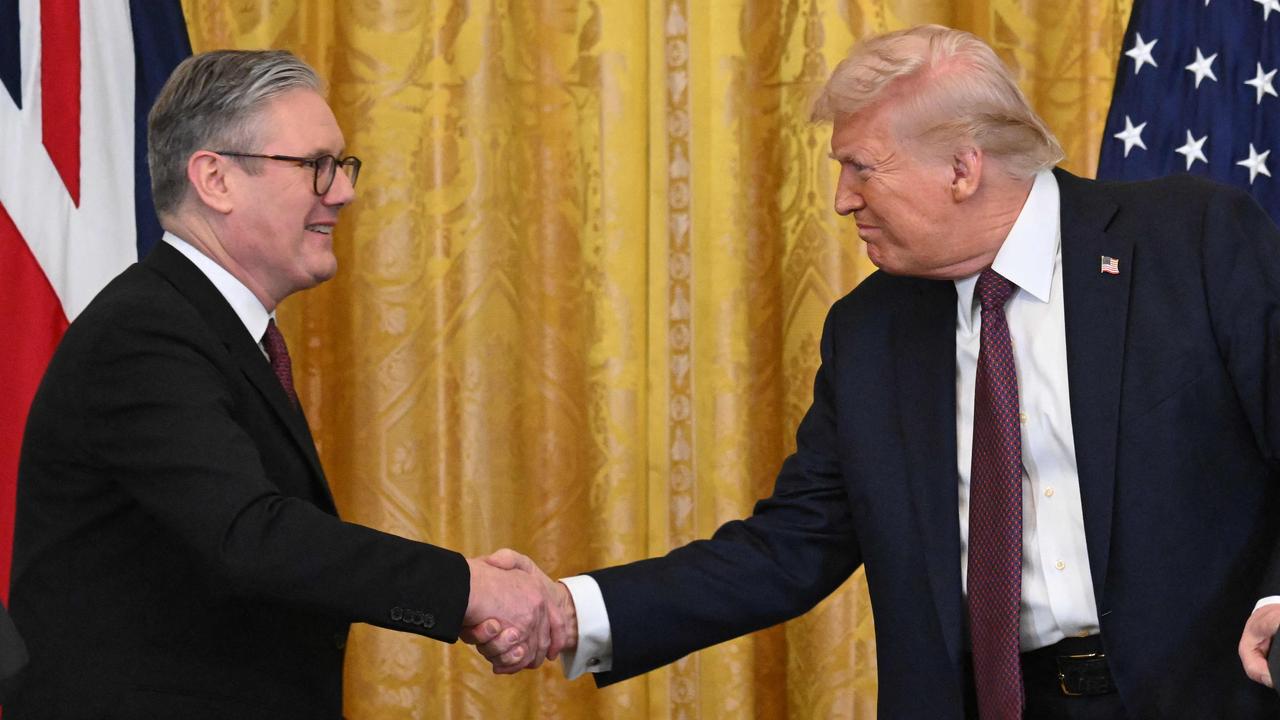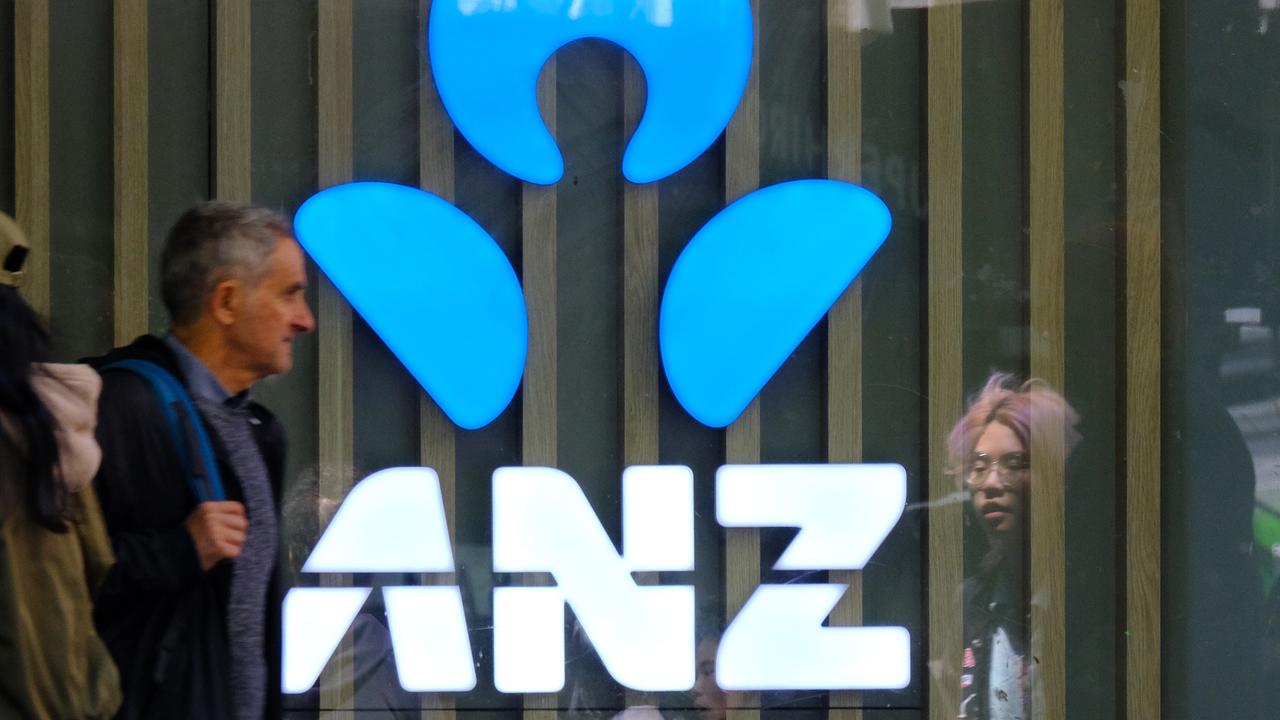Several Australian companies affected by sudden collapse of US bank SVB
A number of Australian firms have been sucked into the sensational collapse of US bank SVB, which provided funding for tech start-ups around the world.

Banking
Don't miss out on the headlines from Banking. Followed categories will be added to My News.
Customers at a major US bank which collapsed over the weekend will receive all their money back in full, just as it emerged that a number of Australian firms have been caught up in the collapse.
On Saturday morning Australian time, the world was rocked by the news that Silicon Valley Bank (SVB), based near San Jose in the US, had gone into receivership.
The bank was the 18th largest in the country and had a market capitalisation of around $40 billion as well as assets of more than $300 billion. It’s been hailed as the second-biggest bank failure in US history.
Initially the US regulator ruled out any possibility of a government bailout but on Monday morning Australian time, customers received better news.
Anyone with a deposit will not lose a single cent of their funds, the US Treasury, Federal Reserve and Federal Deposit Insurance Corporation said in a joint statement.
“Depositors will have access to all of their money starting Monday, March 13,” they said, adding later in the statement: “Today’s actions demonstrate our commitment to take the necessary steps to ensure that depositors’ savings remain safe.”
It comes as major Australian company Canva has been revealed to have some exposure to SVB, while several local venture capital firms have warned that a small amount of their start-ups have also got deposits with the bank.
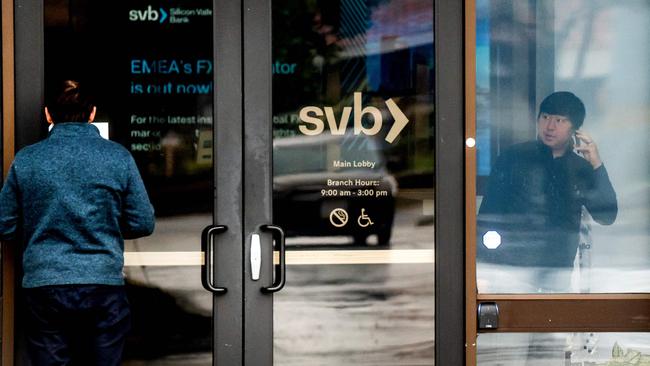
Far-reaching ramifications
SVB’s collapse is expected to have far-reaching consequences for tech and start-ups, with many of them using debt facilities at the bank, and it’s also hit closer to home in Australia.
News.com.au has confirmed that Australian unicorn Canva banked with SVB, although only a small amount of its cash sat with the US institution.
Several Australian venture capital firms have also confirmed that some of their start-ups had deposits with SVB and could be exposed at a small level.
Speaking to news.com.au prior to the news of the government bailout, a Canva spokesperson admitted Canva used SVB but said the “majority” of the company’s cash had not been tied up in the collapse.
“We’re disheartened to see the news about Silicon Valley Bank and the impact it’s having on the tech ecosystem,” they said.
“We’re in the fortunate position of having the majority of our cash outside of their banking system and have safety nets in place to ensure our operations aren’t compromised. We’re not able to share specific figures.”
The multi-billion dollar tech company said other firms had not been so lucky and that it would have an impact on “the broader ecosystem”.

A number of other Australian tech companies have been revealed to have banked with SVB, according to a report compiled by Ownership matters.
ASX-listed machine intelligence firm Whispir, family tracking app Life360, software firm SiteMinder, EBR Systems, buy now pay later provider LayBuy Group, Straker Translations and Nightingale Intelligent Systems are among the affected deposit holders.
Accounting software firm Xero – which was in the news last week after laying off 800 staff globally – had a working relationship with SVB in the past.
On top of that, the report also revealed that British-US asset management Janus Henderson, alongside buy now pay later service Sezzle and Virgin Money have board directors linked to SVB.
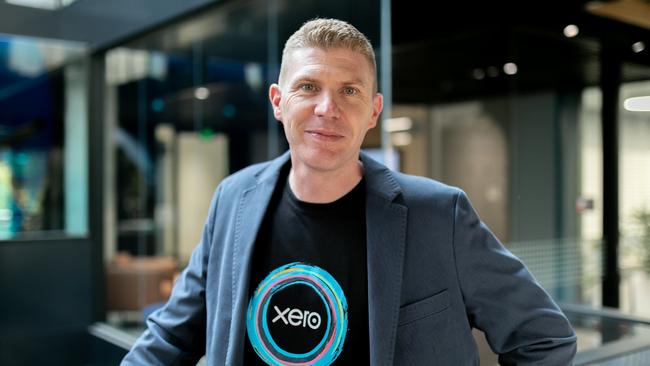
‘Sad and challenging’ time after collapse
Meanwhile, Australian venture capital firms are also waiting to see what the fallout will mean on some of their start-ups.
A homegrown VC firm, AirTree, revealed that more than a quarter of the companies it had thrown its weight behind had a bank account with SVB.
“Approximately 28 per cent of AirTree’s portfolio companies have an SVB account. For the majority, their exposure is minimal,” the company said on LinkedIn.
“We’re working closely with all founders to manage risks and next steps.”
AirTree itself did not have any direct dealings with SVB.
They called the bank’s collapse “sad and challenging” for founders and start-ups around the world.
Meanwhile, Blackbird, which was a key backer of Canva, said that a small portion of the start-ups it had invested in had been customers at the failed US bank.
Luckily, Blackbird never directly deposited any funds into the now-defunct financial institution.
“Blackbird is not directly affiliated or involved with SVB. We have worked with SVB on behalf of our portfolio companies and the majority of these companies have not been affected,” a spokesperson said.
Likewise, Square Peg Capital, another local VC company, said there was no direct impact on them but a few of their companies had been sucked into the saga.
Paul Bassat, founder of Square Peg, said that he was “deeply saddened” to learn of SVB’s demise and that it had implications for the global start-up scene.
“Square Peg does not have a relationship with SVB, and there is no direct impact on Square Peg, or on most of our portfolio companies,” he said in a statement.
“Fortunately none of Square Peg’s portfolio have a short-term working capital crisis or any long-term existential risk.
“While some of our portfolio companies have had exposure to SVB, in a number of cases they were able to withdraw all of their funds or reduce their exposure late last week, but a few of our portfolio companies have remaining deposits with SVB.”
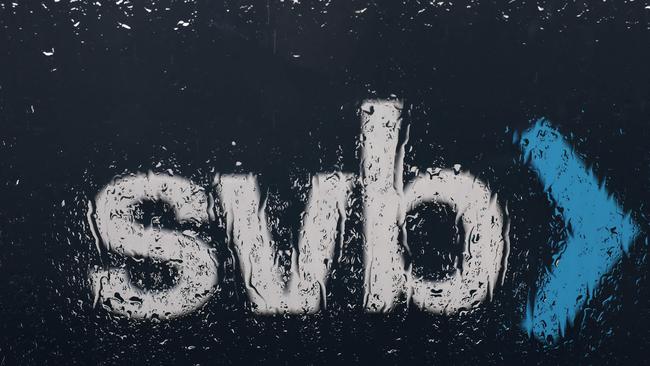
US building managers at Silicon Valley Bank’s Manhattan branch reportedly called the police after a group of tech founders showed up and attempted to pull out their cash.
However, from Monday local time (Tuesday in Australia), unsecured deposit holders will able to access and withdraw their cash.
“American taxpayers will not be footing the bill, as any losses to the Deposit Insurance Fund to support uninsured depositors will be recovered by a special assessment on banks,” the regulator said in a statement.
It comes after the US government on Sunday was adamant it would not bail out SVB.
“During the financial crisis, there were investors and owners of systemic large banks that were bailed out,” a government spokesperson said.
“And the reforms that have been put in place means that we’re not going to do that again.”
Earlier on Monday, another US bank also collapsed, called Signature Bank, after US regulators took control and closed down operations.
More Coverage
Originally published as Several Australian companies affected by sudden collapse of US bank SVB




